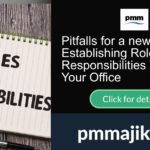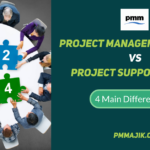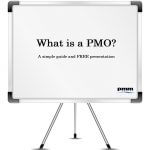Workshops can be an integral part of a successful project process in a project management office (PMO). When running or supporting workshops with your projects, you need to know the five roles within a PMO workshop.
Running workshops can accomplish tasks and move projects along when they have bottlenecks. They can be an essential part of getting a project completed, and it’s important your PMO knows how to optimise workshops.
It’s important to understand the roles within a PMO workshop so that you can make sure the preparatory materials, workshop flow, and follow-up are done smoothly. To help with that, we’re going to look at:
- The five roles within a PMO workshop
- The mandatory roles that every workshop needs
- What each role should bring to a PMO workshop
Role 1: The facilitator
The facilitator is the leader of the workshop. Their role is to run the show, from keeping time and presenting materials to guiding the session to come to the conclusions that are required.
The workshop facilitator can be the person who has designed the workshop and its materials or someone else who has the confidence to get the job done. They need to know the details of the workshop and what needs to be produced, so having some knowledge of the project at hand is useful.
The aim of a facilitator is to get the best from the people in attendance. They should know how to ask leading questions and steer a conversation in a productive direction.
You can choose to have a person from your PMO act as a workshop facilitator. This means they will know your organisation and processes, but it could detract from their wider role, so make sure you have sufficient resources.
It’s possible to hire a facilitator from outside to run workshops. This will give you a professional who will ensure workshops go to plan, but they may not have the right subject matter expertise to understand some of the more detailed workshop goals.
Every workshop needs a facilitator.
Role 2: The co-facilitator
Not every workshop will need a co-facilitator, but once it reaches a certain level of participation, you should consider adding one.
A co-facilitator is there to make sure the workshop leader can focus on their role. This means they will do things like set up equipment like projectors, hand out printed materials and ensure the workshop runs smoothly.
There isn’t a golden rule about when you will need a co-facilitator – take feedback from the facilitator and participants based on the structure and aims of the workshops you run.
Role 3: Collector
It’s vital that every workshop is well-documented. This is to ensure that everything, such as:
- Ideas
- Decisions
- Conclusions
- Improvements
Are all noted down and can be shared with participants and other stakeholders.
It’s best practice that a collector uses at least two methods to document a workshop. Taking notes can be a quick way to document and share the key points of the session, whereas audio or video recording will ensure 100% accuracy but can take time to process and transcribe after the event.
Every workshop should have a collector included in the plan.
Role 4: Participants
The people who need to find the answers, give input, or make choices are vital for a workshop. When planning your PMO workshop, you need to make sure the right people come along.
Those who will be there need to be briefed about the mission of the workshop ahead of time. This will make sure the facilitator is able to jump into the workshop without labouring over the point or giving too much background.
Role 5: Listeners
A listener is a person who needs to be aware of what happens in the workshop but probably doesn’t have the expertise to offer a valuable contribution. This could be people from the HR department or developers who will implement changes that are discussed, for example.
A listener might also be someone who you share recordings with rather than have them in the room, so the right people are up to speed on what went on in the workshop. Not all workshops will need listeners.
Workshop roles for your PMO
There are five different roles in your PMO workshops that need to be filled. Make sure that you have the right people present so that your office’s workshops run smoothly and achieve what has been planned for them.






